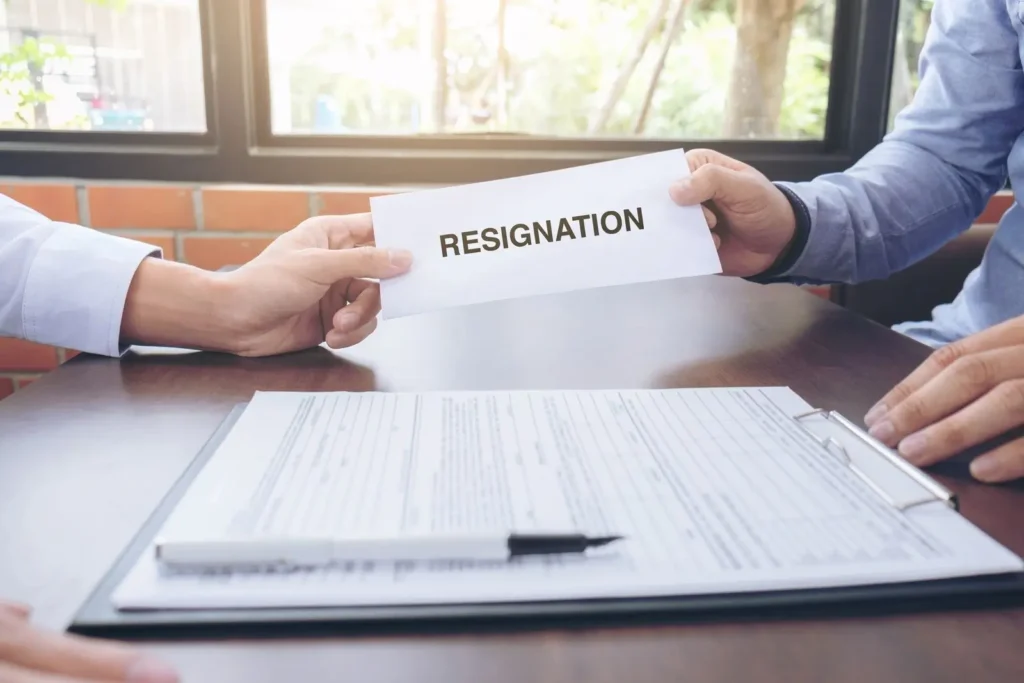Deciding to leave a job after only three months can be a challenging and potentially risky decision for your career. It’s important to weigh the consequences carefully before taking such a step. In this blog post, we will discuss the implications of leaving a job so quickly, and offer some guidance on how to navigate this delicate situation.
Overall, the decision to leave a job after 3 months may have serious repercussions on your professional reputation and future job prospects. However, sometimes situations arise where leaving is the best option for your wellbeing and career growth. It’s important to approach this decision with caution and consider all the potential risks and benefits before taking action.
Key Takeaways:
- Consider the Implications: Leaving a job after only 3 months can have negative repercussions on your professional reputation and future job opportunities. It’s important to carefully weigh the impact of such a decision.
- Communicate Effectively: If you do decide to leave a job after 3 months, it’s crucial to communicate your reasons clearly and professionally to your employer. This can help minimize any potential negative fallout from your departure.
- Reflect on the Experience: Take the opportunity to reflect on the reasons for leaving and what you can learn from the brief tenure. Use this reflection to make more informed decisions about your future career moves.
Understanding the Reasons for Early Departure
Clearly, leaving a job after just three months is not a decision that anyone takes lightly. There are various factors that could have contributed to your early departure, and it’s important to understand them in order to learn from the experience and make informed decisions in the future.

Recognizing Common Triggers
When it comes to leaving a job after a short period of time, there are several common triggers that may have influenced your decision. These triggers could include a toxic work environment, lack of growth opportunities, mismatched expectations, or a poor cultural fit. It’s crucial to recognize these triggers and reflect on how they may have impacted your overall satisfaction and performance in the role.
Evaluating Your Circumstances
Before making the decision to leave a job after only three months, it’s important to carefully evaluate your circumstances. Consider the challenges you faced, the support you received (or lacked), and the alignment between your skills and the demands of the role. Reflect on whether the issues were temporary or systemic, and whether they were within your control to change. Understanding your circumstances will help you make a more informed career move.
The Resignation Process
Any decision to leave a job can be a difficult one, especially when you have only been with the company for a short period of time. However, knowing the proper steps to take can help make the process smoother and less stressful. The resignation process involves preparing to resign and communicating your decision in a professional manner.

Preparing to Resign
When preparing to resign from your job after only 3 months, it’s important to carefully consider your reasons for leaving and ensure that you have a solid plan in place for your next steps. Take the time to evaluate your decision and weigh the potential consequences. Consider the impact your resignation may have on your work relationships and future job prospects. It’s essential to be prepared for any potential fallout from your decision and to have a clear understanding of what you hope to achieve by leaving your current position.
Professional Ways to Communicate Your Decision
When it comes time to communicate your decision to resign, it’s essential to do so in a professional and respectful manner. Schedule a meeting with your manager to discuss your decision in person. Clearly and concisely explain your reasons for resigning, being sure to express gratitude for the opportunity to work with the company. Avoid burning bridges or speaking negatively about your experience at the company, as this can reflect poorly on your professionalism. Instead, focus on your future goals and how your decision to leave aligns with them.
Transitioning Smoothly
To ensure a smooth transition as you leave your job after 3 months, there are several important factors to consider. This will not only help you leave on good terms but also maintain your professional reputation.

Handling Counteroffers
When you resign from a job, there is a possibility that your current employer may make a counteroffer in an attempt to retain you. While this may seem enticing, be cautious as accepting a counteroffer can have negative consequences in the long run. It may create an unstable work environment and affect your relationship with your current employer. It’s best to politely decline the counteroffer and maintain a professional stance.
Knowledge Transfer and Documentation
Before leaving your job, it’s crucial to ensure a smooth transition by transferring your knowledge and documenting your tasks and responsibilities. This will benefit your successor and the company as a whole. Prepare a comprehensive handover document detailing your ongoing projects, tasks, and any important information. Effective knowledge transfer will ensure that your departure does not disrupt the workflow and will reflect positively on your professionalism.
The Aftermath of Leaving
Now that you’ve made the decision to leave your job after just 3 months, it’s important to consider the aftermath and how to navigate the next steps. Leaving a job so soon can bring about various challenges and opportunities, and it’s essential to approach the aftermath with a clear mind and strategic plan.

Managing Relationships with Former Colleagues
As you move on from your job after a short tenure, it’s crucial to maintain positive relationships with your former colleagues. Keep in mind that how you handle your departure can have a lasting impact on your professional reputation. Be respectful and professional in all your interactions, and if possible, express gratitude for the experience. You never know when you might encounter your former colleagues again in a new professional setting, so leaving on good terms is essential for maintaining a positive network. Remember, burning bridges can have long-term consequences.
Setting the Stage for Future Opportunities
Leaving a job after a short period can raise questions during future job interviews. It’s important to have a clear and honest explanation for your departure. Emphasize what you have learned from the experience and how it has contributed to your professional growth. Be prepared to address this in a confident and positive manner. Additionally, focus on highlighting the skills and experiences you gained during your brief time at the job, as this can demonstrate your adaptability and resilience to potential employers.
Conclusion – Leaving A Job After 3 Months
With this in mind, if you find yourself considering leaving a job after only 3 months, it’s important to carefully evaluate your reasons for doing so. While there may be valid reasons for making such a decision, it’s crucial to also consider the potential impact on your career and future job prospects. Leaving a job after such a short time frame can raise red flags for future employers and may require a thoughtful explanation in future interviews.
It’s important to weigh the pros and cons before making a decision that could have lasting implications on your career. Additionally, it may be beneficial to seek guidance from a mentor or career advisor before taking any drastic steps. Ultimately, the decision to leave a job whether after 3 months, 6 months, 8 months or 4 months should be carefully considered and made with long-term goals in mind.
People Also Asks – Leaving A Job After 3 Months
Is it common to leave a job after only 3 months?
It is not common to leave a job after 3 months, as it can reflect poorly on your resume and could raise concerns for future employers. So contact our writers to write your resume professionally.
What should I consider before leaving a job after 3 months?
Before leaving a job after just 3 months, consider the impact it will have on your career, the reasons for leaving, and if there is any way to improve the situation before making a decision.
How should I explain leaving a job after 3 months in future interviews?
When explaining leaving a job after 3 months in future interviews, be honest and focus on the reasons behind your decision, as well as what you learned from the experience.
Will leaving a job after 3 months affect my professional reputation?
Leaving a job after 3 months can affect your professional reputation, as it may raise concerns about your commitment and reliability to future employers. However, if you handle the situation professionally and learn from the experience, it may not have a lasting impact.
Should I include a job I left after 3 months on my resume?
Including a job you left after 3 months on your resume is optional. If you believe it adds value to your experience or is relevant to the position you are applying for, you can include it. However, be prepared to discuss your reasons for leaving in your remote interviews etc.

